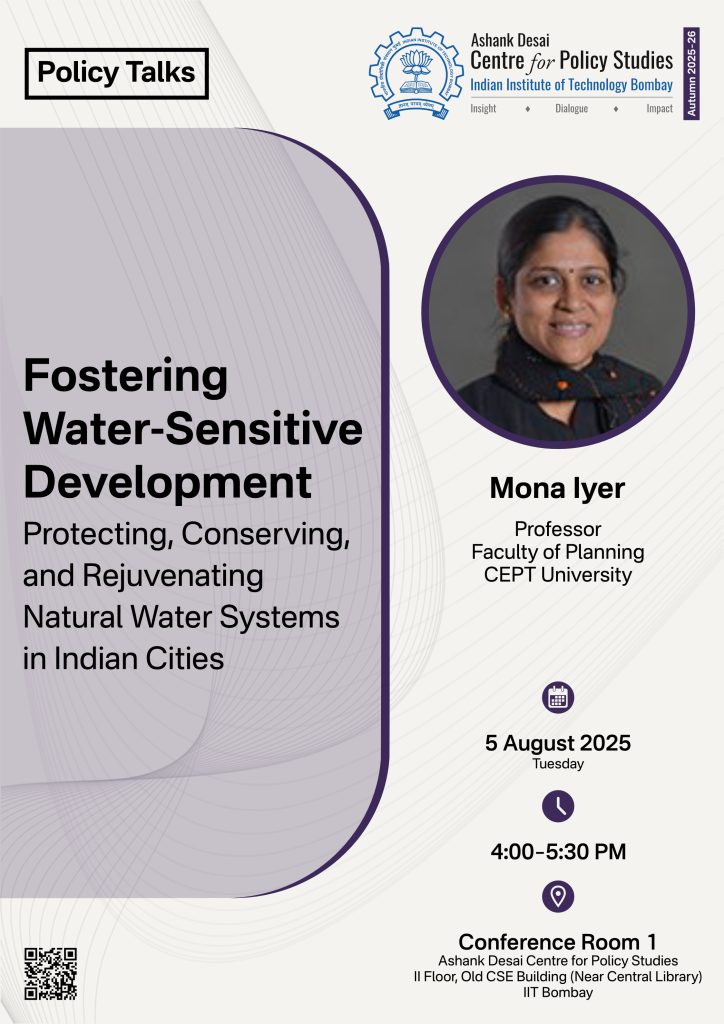Abstract: Water has long been central to the evolution of human civilisation, not only to ensure year-round water availability but also to prevent flooding. Rivers, lakes, ponds, tanks, wells, and the sea are the lifelines of urban life. Rapid urbanisation has led to the widespread encroachment, pollution, and degradation of these water bodies, putting entire ecosystems and urban populations at risk. Natural water systems, apart from fulfilling basic human needs, provide crucial ecosystem services — including climate regulation, groundwater recharge, and recreational and aesthetic value — all of which strengthen the case for water-sensitive urban development.
This talk will explore the critical role of natural water systems in shaping cities — past and present. It will reflect on the embedded water sensitivity in ancient and medieval urban planning, and examine the contemporary water challenges faced by Indian cities today. Through case studies from India and across the world, it will delve into the disappearance of urban lakes and water channels, the resultant increase in urban flooding, and promising initiatives for their revival and rejuvenation. The session will conclude with a set of actionable recommendations for mainstreaming water sensitivity in spatial planning and governance, supported by real-world examples and proofs-of-concept.
Speaker Bio-sketch: Mona Iyer is a Professor and Dean, Faculty of Planning at CEPT University. She has over 24 years of experience in research, training, and consultancy in water, sanitation, and waste management sectors with a focus on policy initiatives and project development, mainly in Asia and the Pacific. She has been a recipient of the British Chevening Fellowship for Environment Management, UK, and the Netherlands Fellowship Program at UNESCO-IHE, Institute for Water Education, Delft. Mona is a civil engineer and urban planner and holds a PhD in urban wastewater reuse policies. She is amongst 15 selected national experts on urban water systems and is Principal Investigator for an ongoing five-year DST-NWO supported Indo-Dutch research project at CEPT-CWAS, titled “Water 4 Change.”
